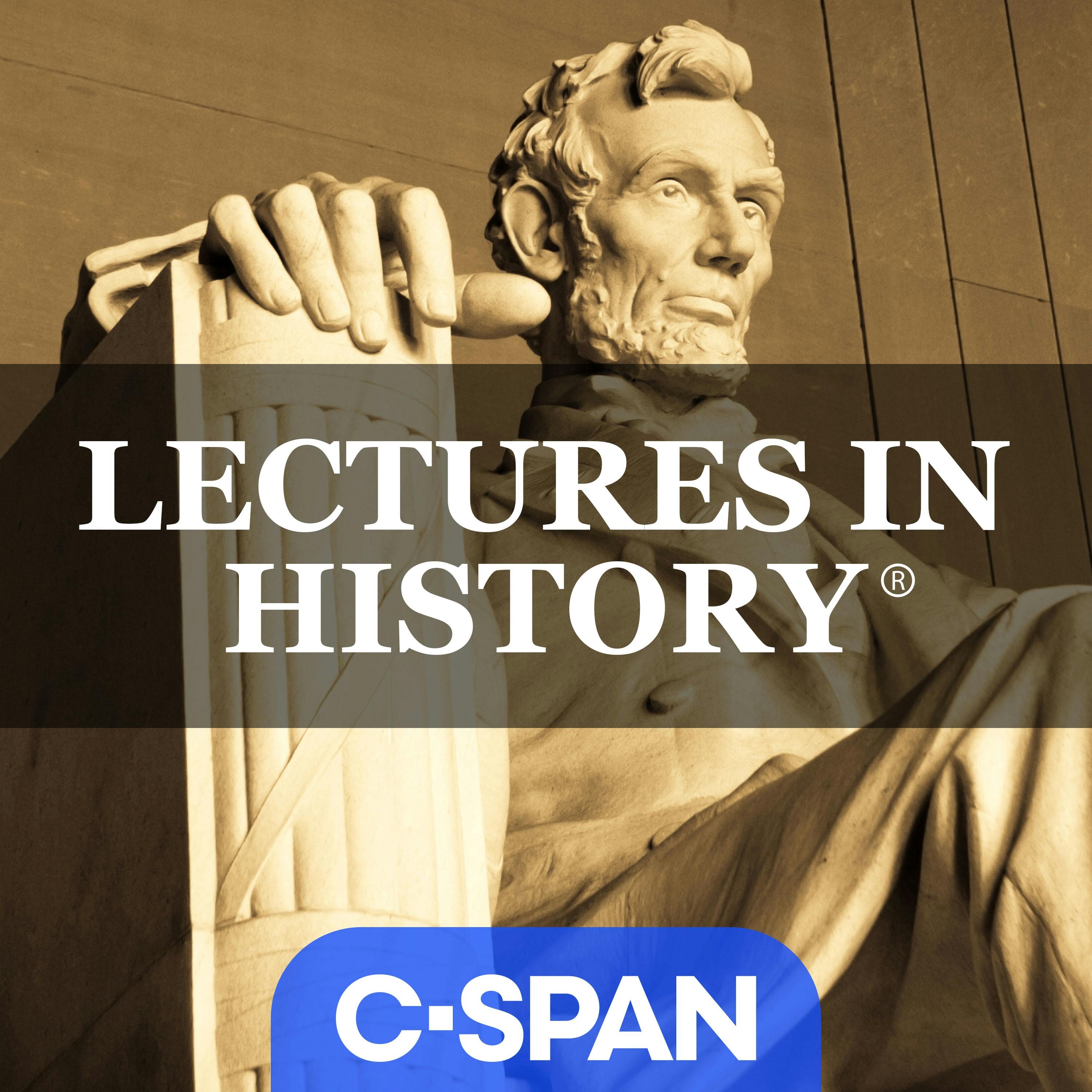

Lectures in History
C-SPAN
Go back to school with the country's top professors lecturing on a variety of topics in American history. New episodes posted every Saturday evening. From C-SPAN, the network that brings you "After Words" and "C-SPAN's The Weekly" podcasts.
Episodes
Mentioned books

May 31, 2020 • 1h 12min
The Spanish-American War
University of North Carolina at Chapel Hill professor Joseph Glatthaar teaches a class on the 1898 Spanish-American War. Learn more about your ad choices. Visit megaphone.fm/adchoices

May 24, 2020 • 1h 17min
Nixon, Ford & the Constitution
Duquesne University president Ken Gormley teaches a class looking at constitutional issues stemming from the Watergate scandal that arose during the presidencies of Richard Nixon and Gerald Ford. Learn more about your ad choices. Visit megaphone.fm/adchoices

May 17, 2020 • 1h 6min
Free Speech Laws and Court Cases
University of Tennessee College of Law professor Glenn Harlan Reynolds teaches a class about free speech and the legal cases that have impacted the courts' interpretation of this part of the First Amendment. Learn more about your ad choices. Visit megaphone.fm/adchoices

May 10, 2020 • 1h 7min
Early Cold War U.S. Politics and Economics
George Mason University professor Sam Lebovic taught a class about U.S. politics and economics of the early Cold War period of the late-1940s and 1950s. He argued that with extreme ideologies such as fascism and communism completely discredited or out of favor, a consensus formed in the U.S. around centrist political views to the point where the political parties were barely distinguishable. On the economic front, a belief in a “mixed economy” ruled, meaning a broad acceptance of some government involvement in the market. Learn more about your ad choices. Visit megaphone.fm/adchoices

May 3, 2020 • 1h 13min
Rosa Parks and the Montgomery Bus Boycott
Wellesley College professor Brenna Greer debunked some of the myths about Rosa Parks and the 1955-56 Montgomery bus boycott. She addressed that Parks was not the first African American woman who refused to give up her seat and that the boycott had planning and precedent. She also explored with the class why a simplified version of this history has become so widespread. Learn more about your ad choices. Visit megaphone.fm/adchoices

Apr 26, 2020 • 1h 13min
1890s Growing American Internationalism
Baylor University professor David Smith taught a class about the growth of the internationalist worldview in 1890s America. He argued that economic, moral and political impulses caused Americans to consider a larger role in the world for their nation. Smith then detailed the actions they took, such pursuing missionary work, arguing for the expansion of the navy, and searching for new economic markets. Learn more about your ad choices. Visit megaphone.fm/adchoices

Apr 17, 2020 • 1h 27min
History of Abortion Legislation
La Sierra University professor Alicia Gutierrez-Romine taught a class about laws and policies regarding abortion. Starting in the 19th century, she tracked changes in medical practice and public opinion through court cases and newspaper coverage. She also described abortion restrictions, access to illegal abortions, costs, and health risks in different time periods and states. Learn more about your ad choices. Visit megaphone.fm/adchoices

Apr 12, 2020 • 1h 7min
Principles of the U.S. Constitution
Grove City College president Paul McNulty taught a class about the development of the U.S. Constitution and what he believes are its main principles: republicanism, the separation of powers, and federalism. Mr. McNulty served as deputy attorney general in the George W. Bush administration from 2006 to 2007. Learn more about your ad choices. Visit megaphone.fm/adchoices

Apr 5, 2020 • 55min
African Americans, Emancipation, and Defining Freedom
Virginia Commonwealth University Professor Nicole Myers Turner taught a class on the lives of formerly enslaved African Americans following emancipation. She explained how they defined freedom for themselves while the federal government debated political and legal definitions. Professor Turner also discussed the important role of religious and educational institutions in newly freed African American communities. Learn more about your ad choices. Visit megaphone.fm/adchoices

Mar 29, 2020 • 1h 16min
1918 Influenza Pandemic and Public Information
Stony Brook University Professor Nancy Tomes taught a class about the 1918 influenza pandemic and public information efforts in the United States to stop the spread of the disease. She described methods such as canceling public gatherings, social distancing, and propaganda about good hygiene, which are still implemented. This class was filmed on March 10, 2020, during the early stages of the coronavirus outbreak in the U.S. Professor Toms compared the symptoms, economic impact, and national response between 1918 and today. Learn more about your ad choices. Visit megaphone.fm/adchoices


